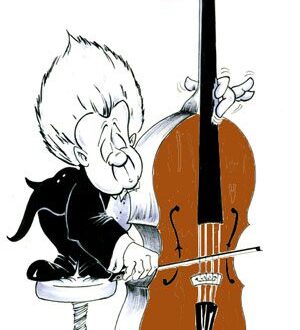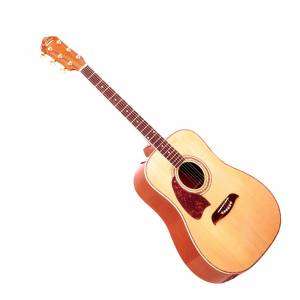The eternal debate: at what age should a child start teaching music?
Debates about the age at which one can start learning music have been going on for a long time, but by and large, no clear truth has emerged from these debates. Supporters of early (as well as very early) development are also right – after all,
Opponents of too early education also make convincing arguments. These include emotional overload, the psychological unpreparedness of children for systematic activities, and the physiological immaturity of their play apparatus. Who is right?
Developmental activities for the youngest children are not modern know-how at all. Back in the middle of the last century, Japanese professor Shinichi Suzuki successfully taught three-year-old children to play the violin. He believed, not without reason, that every child is potentially talented; it is important to develop his abilities from a very early age.
Soviet music pedagogy regulated music education in this way: from the age of 7, a child could enter the 1st grade of a music school (there were seven classes in total). For younger children, there was a preparatory group at the music school, which was accepted from the age of 6 (in exceptional cases – from five). This system lasted for a very long time, surviving both the Soviet system and numerous reforms in secondary schools.
But “nothing lasts forever under the sun.” New standards have also come to the music school, where education is now considered pre-professional training. There are many innovations, including those affecting the starting age of education.
A child can enter first grade from 6,5 to 9 years old, and studies at a music school lasts 8 years. Preparatory groups with budget places have now been abolished, so those who want to teach children from an earlier age will have to pay quite a significant amount of money.
This is the official position in terms of starting to study music. In reality, there are now a lot of alternative options (private lessons, studios, development centers). A parent, if desired, can introduce his child to music at any age.
When to start teaching a child music is a very individual question, but in any case it needs to be solved from the position of “the sooner, the better.” After all, learning music does not necessarily mean playing an instrument; at an early age, this can wait.
Mother’s lullabies, palm-palms and other folk jokes, as well as classical music playing in the background – these are all “harbingers” of learning music.
Children attending kindergartens study music there twice a week. Although this is far from a professional level, there are undoubtedly benefits. And if you are lucky with a music director, then you don’t have to worry about additional classes. All you have to do is wait until you reach the right age and go to music school.
Parents usually wonder at what age to start music lessons, meaning how early can this be done. But there is also an upper age limit. Of course, it’s never too late to learn, but it depends on what level of musical education you’re talking about.
. But if we talk about professional mastery of an instrument, then even at the age of 9 it’s too late to start, at least for such complex instruments as the piano and violin.
So, the optimal (average) age for starting music education is 6,5-7 years. Of course, each child is unique, and the decision must be made individually, taking into account his abilities, desire, pace of development, readiness for classes and even health status. Still, it’s better to start a little earlier than to be late. An attentive and sensitive parent will always be able to bring their child to music school on time.
No comments





